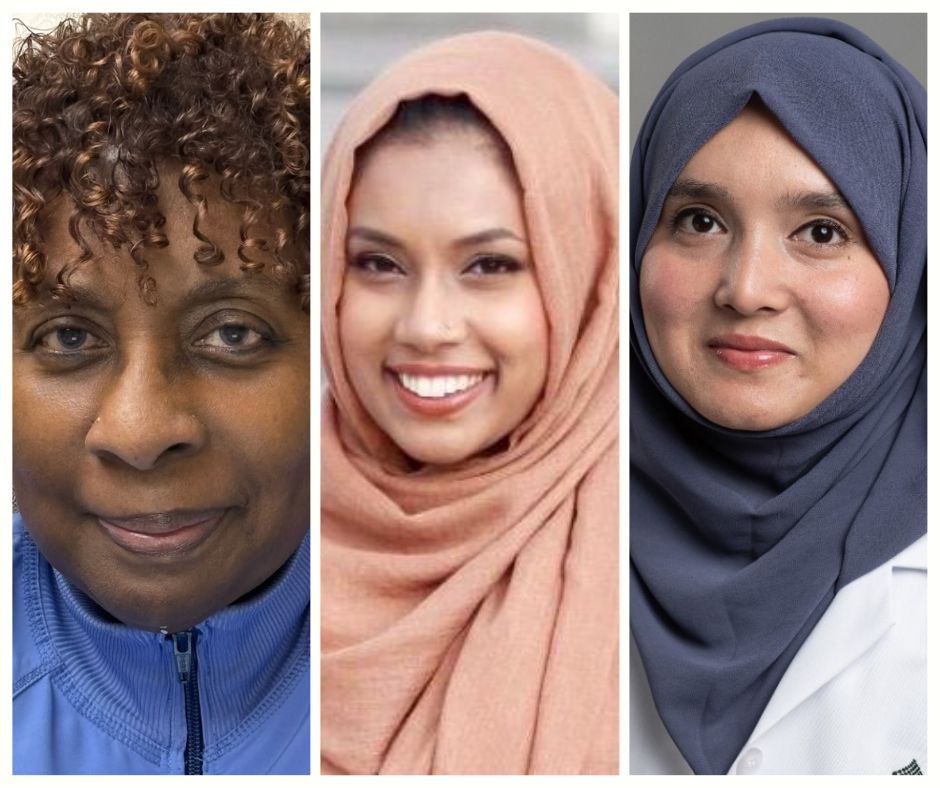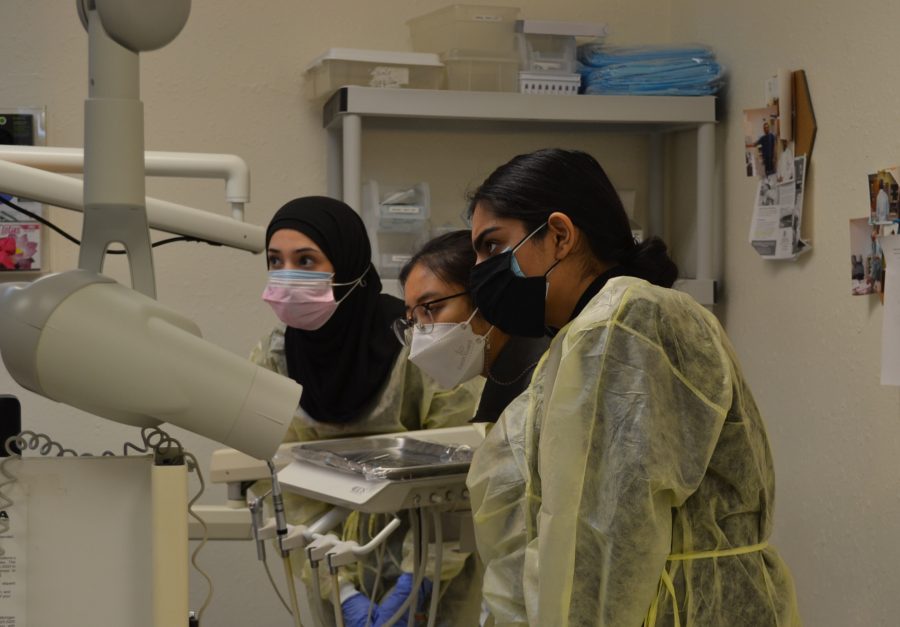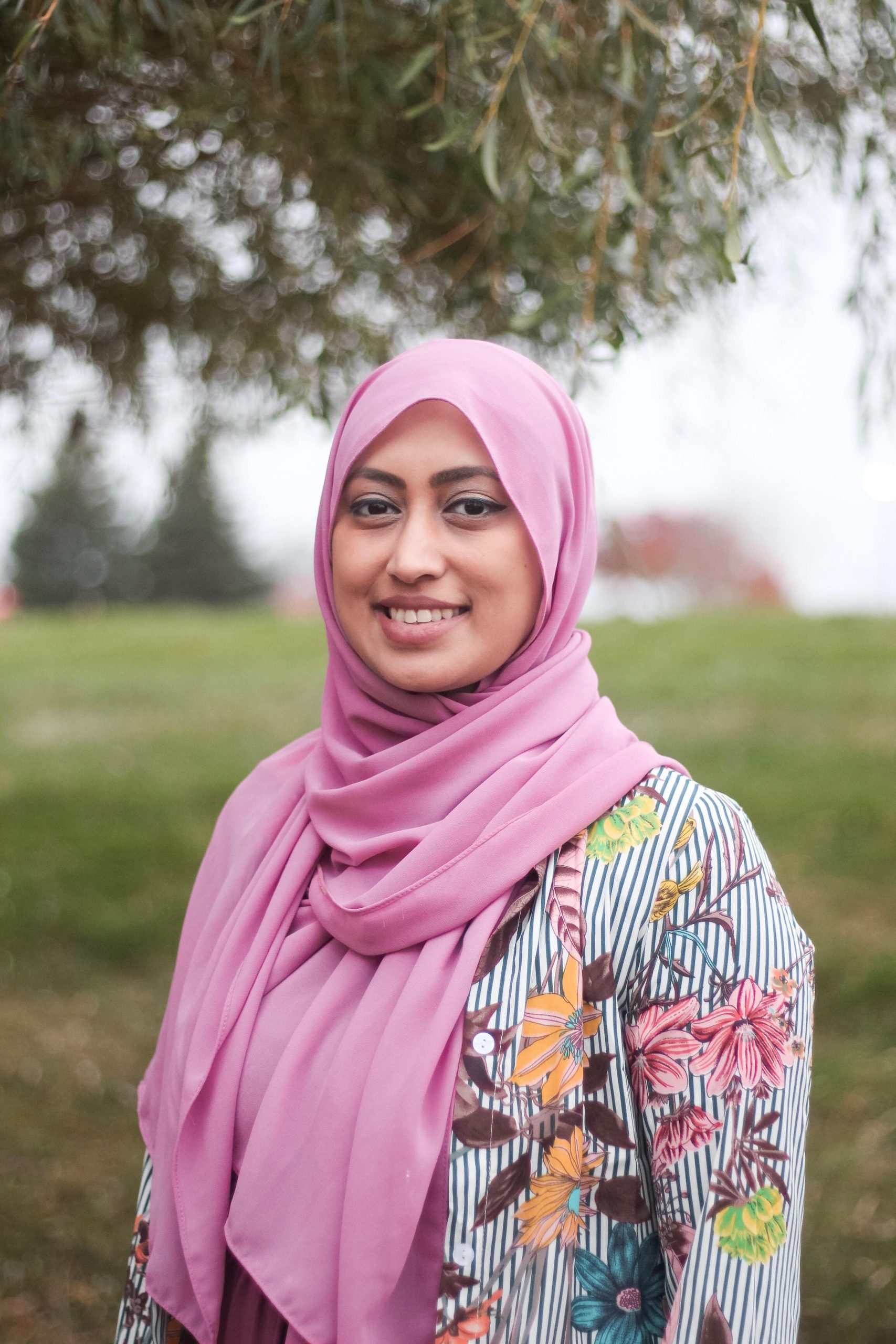Shustho: Free health clinic aims to close insurance gap for Bangladeshi women in southeast Michigan
Nargis Rahman March 26, 2025Nurse Practitioner Joann Harrison says about 30% of the patients at the Health Unit on Davison Avenue in Detroit (HUDA Clinic) are Bangladeshi women.

Editor’s Note: This story is part three of a new four-part series from WDET’s Nargis Rahman called, “Shustho: Mind, Body, and Spirit,” exploring health care and health care access for Bangladeshi women.
The Health Unit on Davison Avenue in Detroit (HUDA Clinic) is the largest free health care clinic in Wayne County. It serves uninsured and underinsured patients helping about 5,000 patients annually.
Nurse Practitioner Joann Harrison says about 30% of HUDA’s patients are Bangladeshi women. She says many struggle with mental health and chronic conditions due to lack of access to regular care.
“There are problems with hypertension and diabetes. I just see a wide variety of issues, a lot of it has to do with not knowing how to manage or not having the resources to manage issues,” she said.
Within that care, Harrison says Bangladeshi women are more receptive to female health care providers.
“I think they’re more open to talk with us. Unfortunately, that’s not always the case that we have female providers available or female translators available, but I do feel that when there is someone present, there is more openness, more freedom to speak with us,” she explained.
The clinic also provides interpreters and translated educational materials.
Harrison, who is Black, said she is learning more about Bangladeshi culture, including about food and family values, to better serve her patients. “I’m learning all the time about how to help them, especially the women, to better care for themselves and what issues affect them.”
Dr. Nashita Molla is a Bangladeshi American physician who volunteers at the HUDA Clinic. Part of her care is educating Bangladeshi women about preventive care.
“In Bangladesh there isn’t a whole lot of cancer screening, so patients don’t have a PCP that they go to continuously and get colonoscopies every 10 years, or pap smears every three to five years,” she said.
Molla said having more Bangladeshi doctors and health care providers who are women could improve care for Bangladeshi women patients.
“If I’m not there, or, you know, another female Bengali provider is not there, or then they’re not going to be as open with those other providers. They might not do those tests because they don’t understand why they need those things,” she shared.

Molla said there’s a need for more free clinics and educational materials in Bengali, such as informational videos on diabetes and hypertension, which are rampant among Bangladeshis.
“I think it helps if there’s another Bengali female saying, like, ‘hey we gotta cut down the portions of how much they’re eating, and cut down on the fried foods, and it’ll mean a lot more coming from them than it would like any other culture,” she said.
Like some patients served at HUDA Clinic, some Bangladeshi women end up in the Emergency Room for primary care because they don’t have adequate insurance.
Dr. Farjana Alam is an emergency medicine physician who works at several hospitals in metro Detroit.
She says socioeconomic barriers contribute to these challenges.
“Poverty is higher in our people. I’ve seen lack of education is higher. And so I think that also plays into effect with all the health literacy gaps which then leads to like issues with chronic illnesses and not having an overall, as great of a health outcomes as, like other people,” she said.
Alam grew up helping her immigrant parents navigate the health care system. As a result, she said she understands firsthand how having limited resources affects one’s health.
Social determinants of health, factors such as limited English proficiency, inadequate insurance and needing help with transportation can make a big difference in health outcomes, she said.
“You can’t compare someone like a white female from a family who has all the resources in the world, who has all the money in the world, her health outcomes, to this Bangladeshi female who barely finished school, who has all these financial constraints over her; like you can’t compare those health outcomes,” she said.
Alam said despite these barriers, Bangladeshi women in metro Detroit are empowering themselves by learning English, learning how to drive, and educating their children to assist them to have better health outcomes.
Read more from this series:
- Bangladeshi women rely on culturally competent care for better health outcomes
- How language access affects health care for Bangladeshi women in Michigan
Trusted, accurate, up-to-date.
WDET strives to make our journalism accessible to everyone. As a public media institution, we maintain our journalistic integrity through independent support from readers like you. If you value WDET as your source of news, music and conversation, please make a gift today. Donate today »Author
-
 Nargis Hakim Rahman is the Civic Reporter at 101.9 WDET. Rahman graduated from Wayne State University, where she was a part of the Journalism Institute of Media Diversity.
Nargis Hakim Rahman is the Civic Reporter at 101.9 WDET. Rahman graduated from Wayne State University, where she was a part of the Journalism Institute of Media Diversity.
